Perfect EPUB Translation: AI-Powered Reading Revolution
Yee
Feb 10, 2025
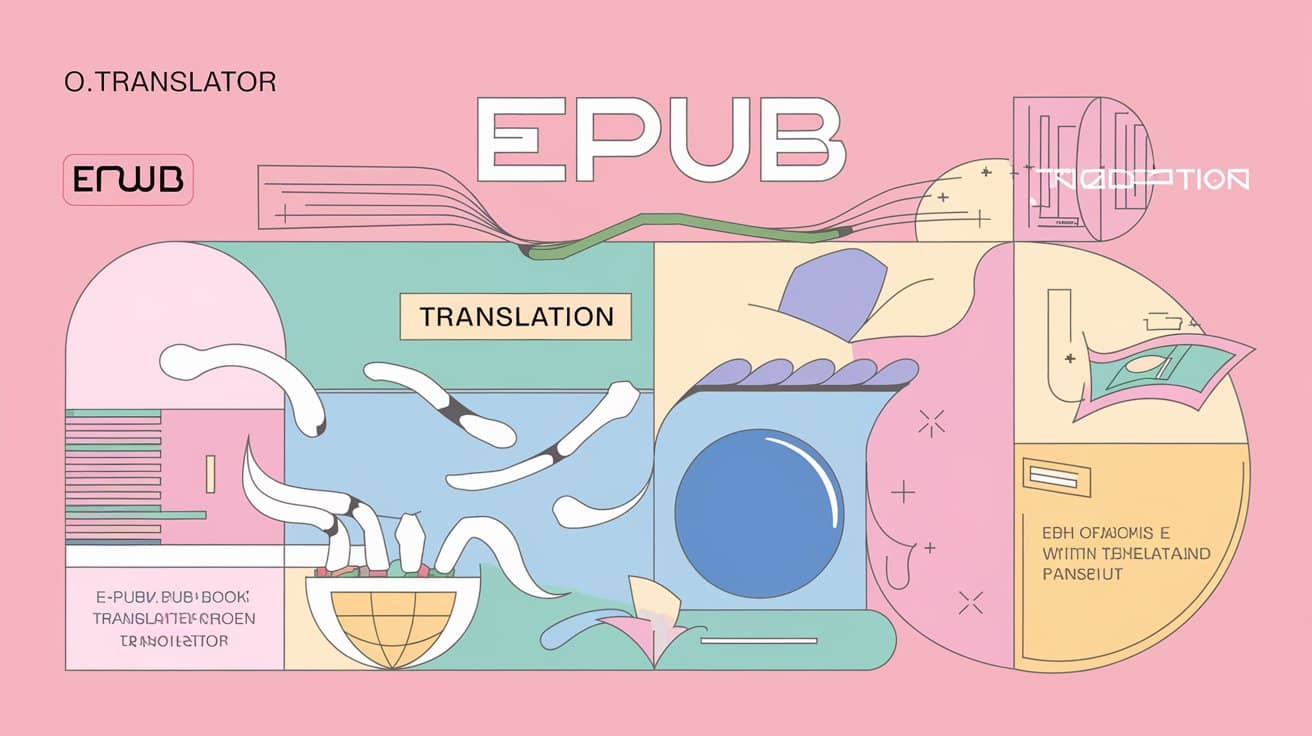
Don’t Let Bad Translations Ruin Your E-Book! The Right Way to Translate EPUBs in the Age of AI
Imagine this: you’ve finally found the EPUB file of that sci-fi masterpiece you’ve always dreamed of reading, ready to immerse yourself in a whole new world on your Kindle or tablet. But the moment you open it, you’re met with... text on images left untouched, paragraph formatting in total disarray, and technical terms that are completely off the mark. Has this kind of awful 'machine translation' instantly killed your excitement to read?
Don’t give up just yet! Thanks to cutting-edge AI models like GPT-4o and Claude, EPUB translation is undergoing an unprecedented revolution. New-generation AI translation tools like O.Translator not only deliver impressively fluent translations, but also miraculously preserve the original layout of the book—giving you a truly immersive reading experience.
Dissecting EPUB: Why Translating Is Like a Full-Scale Renovation?
Why is translating an EPUB e-book such a headache? Because it's so much more than just swapping out text.
An EPUB file is actually a meticulously packaged website. Inside this 'gift box,' you’ll find not only:
- Core Story (HTML text files)
- The 'interior design style' that shapes its appearance (CSS stylesheets)
- Beautiful “wall art” and illustrations (image files)
- The book’s “identity information” (metadata)
When traditional translation tools try to unwrap this “gift box,” they often just crudely grab the text, leaving the “fine finishing touches” that make reading enjoyable in complete disarray. To make matters worse, leading translation sites like Google Translate and DeepL don’t even support uploading EPUB files for direct translation. As the official W3C EPUB specification points out, it’s the built-in complexity of the EPUB format that’s mainly to blame for these challenges.
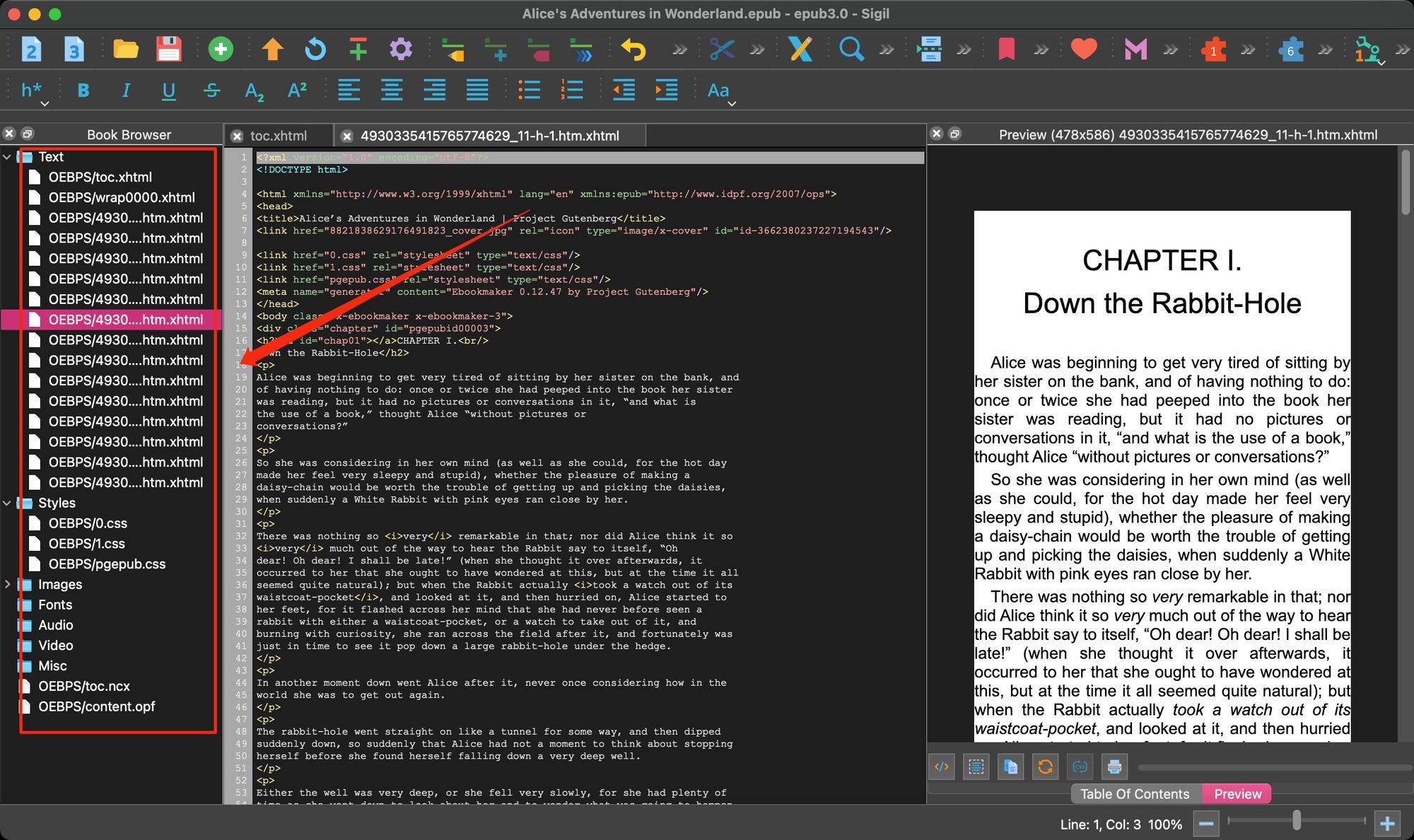
Why do traditional translation methods seem so powerless in the face of EPUB files?
Whether it's expensive human translation or early machine translation, neither could truly handle the unique challenges EPUB brings.
The Two Big Obstacles of Human Translation
- Cost and Time: For works that often run into the hundreds of thousands of words, human translation is not only costly but also painfully slow—almost impossible to accept for readers who crave instant access.
- The Consistency Challenge: When a hefty book is translated by multiple people, it’s all too easy for styles and terminology to clash, seriously disrupting the reading flow.
The “fatal flaws” of traditional machine translation
- Lack of Contextual Understanding: When dealing with complex sentences, puns, or jokes rooted in specific cultures, traditional machine translation often “goes off the rails,” producing awkward and confusing results.
- Formatting ‘Disaster Zone’: This is a common pitfall of all the old-school tools. They mercilessly ignore all the formatting, images, and multimedia in your EPUB, leaving you with text as bare as an unfinished house—a truly disheartening sight.
O.Translator’s Breakthrough: Enabling AI to Think Like a Publishing Editor
To tackle these persistent challenges, O.Translator has taken an innovative approach, letting AI truly 'understand' every detail of an EPUB.
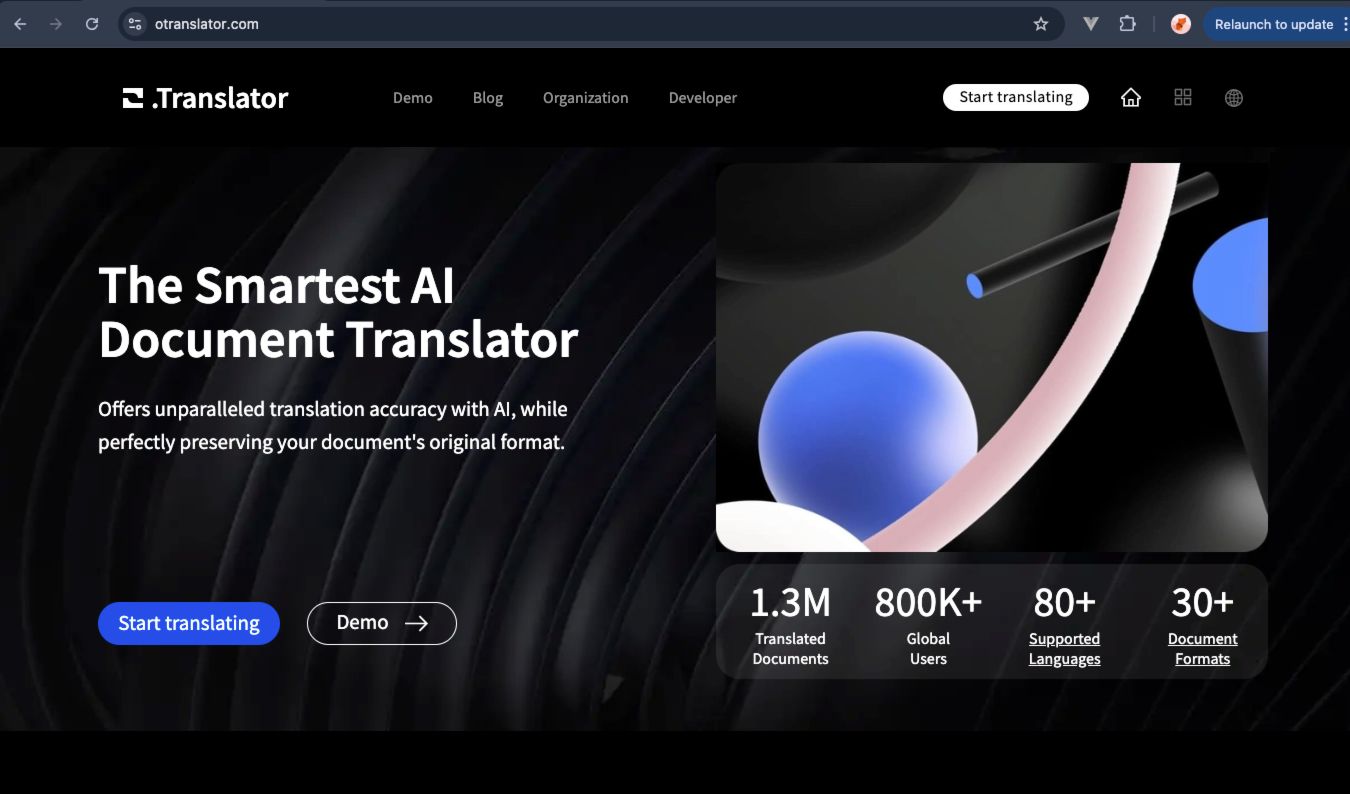
Intelligent Parsing, Perfect Layout Recreation
O.Translator can accurately analyze every element inside an EPUB file. Whether it’s EPUB2 or EPUB3, it ensures that the HTML structure, CSS styles, images, multimedia, and even metadata are all completely preserved after translation—just like a professional typesetter would.
Cutting-Edge AI Delivers Expert-Level Translations
We’ve integrated top-tier AI models like GPT-4o, Claude, and Gemini, empowering them to interpret context with the depth and precision of a true expert. If you're curious about the advantages of GPT translation, take a deeper look!To nail down technical terms, you can even use the custom glossary feature to build your own personalized dictionary.
User-friendly design—say goodbye to complicated steps.
Your valuable time shouldn’t be wasted trying to figure out how to use a tool. At O.Translator, just upload your file, select your language, and start with one click. The entire process is as easy and intuitive as ordering takeout.
A vibrant community—no more exploring alone
Having trouble? Don’t go it alone! Join our vibrant Discord community, where you can connect directly with developers and e-book fans from around the world for fast answers and expert support.
Quick Start Guide: Translate Your First EPUB in Three Simple Steps
-
Visit the O.Translator translation page
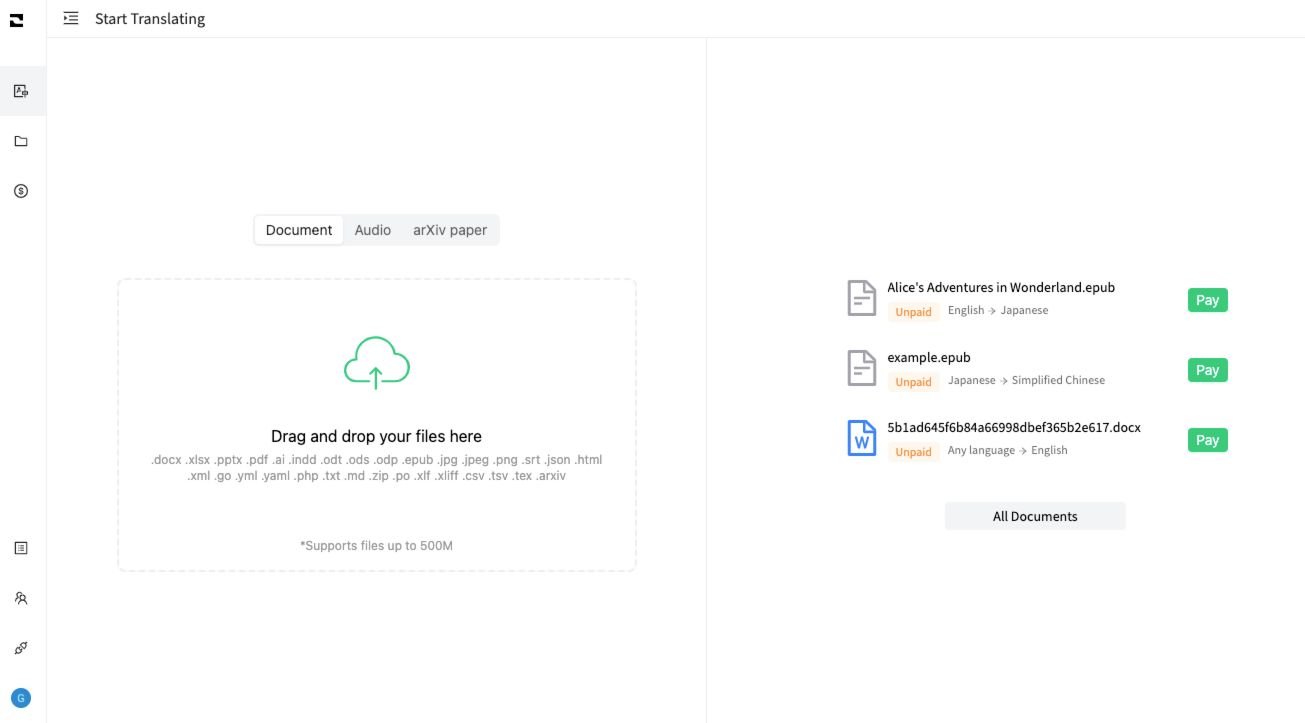
-
Upload your EPUB file and choose your target language
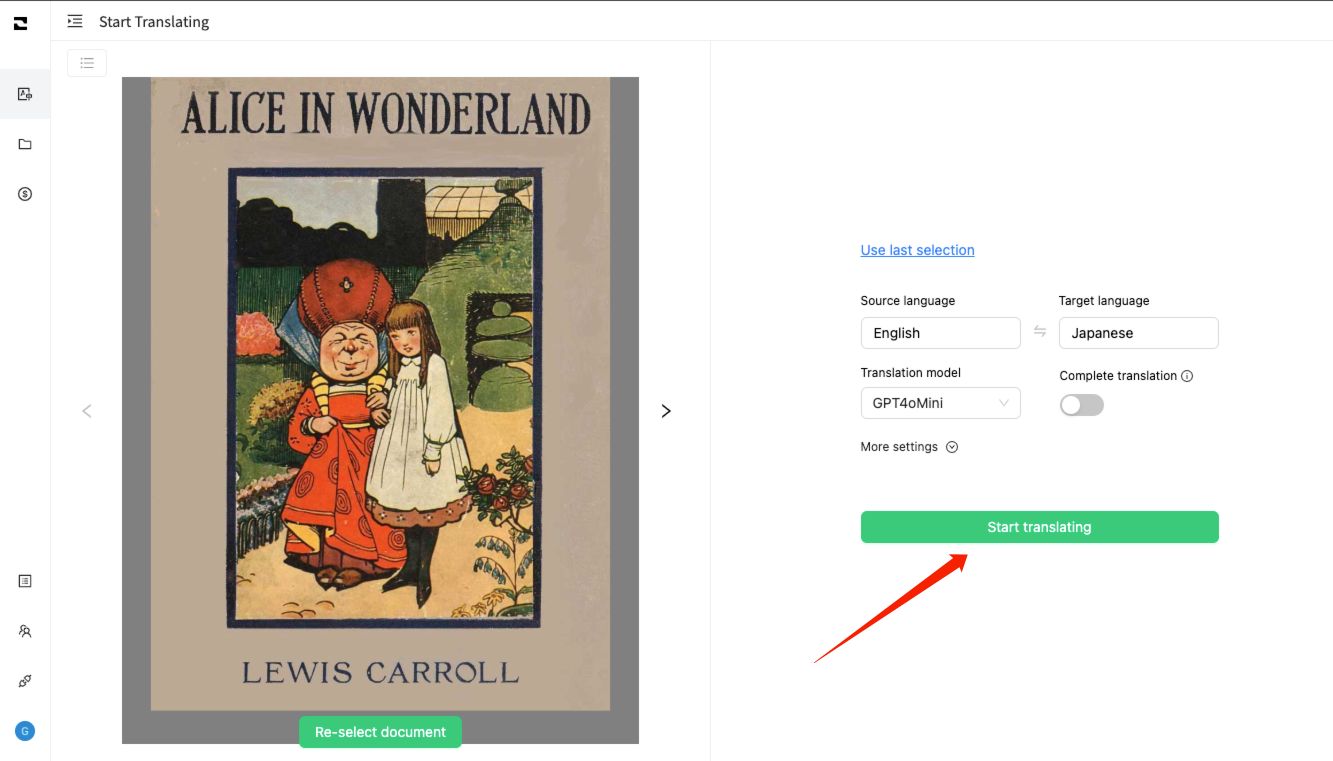
-
Click Translate, and in just a moment you’ll be able to preview and download your results
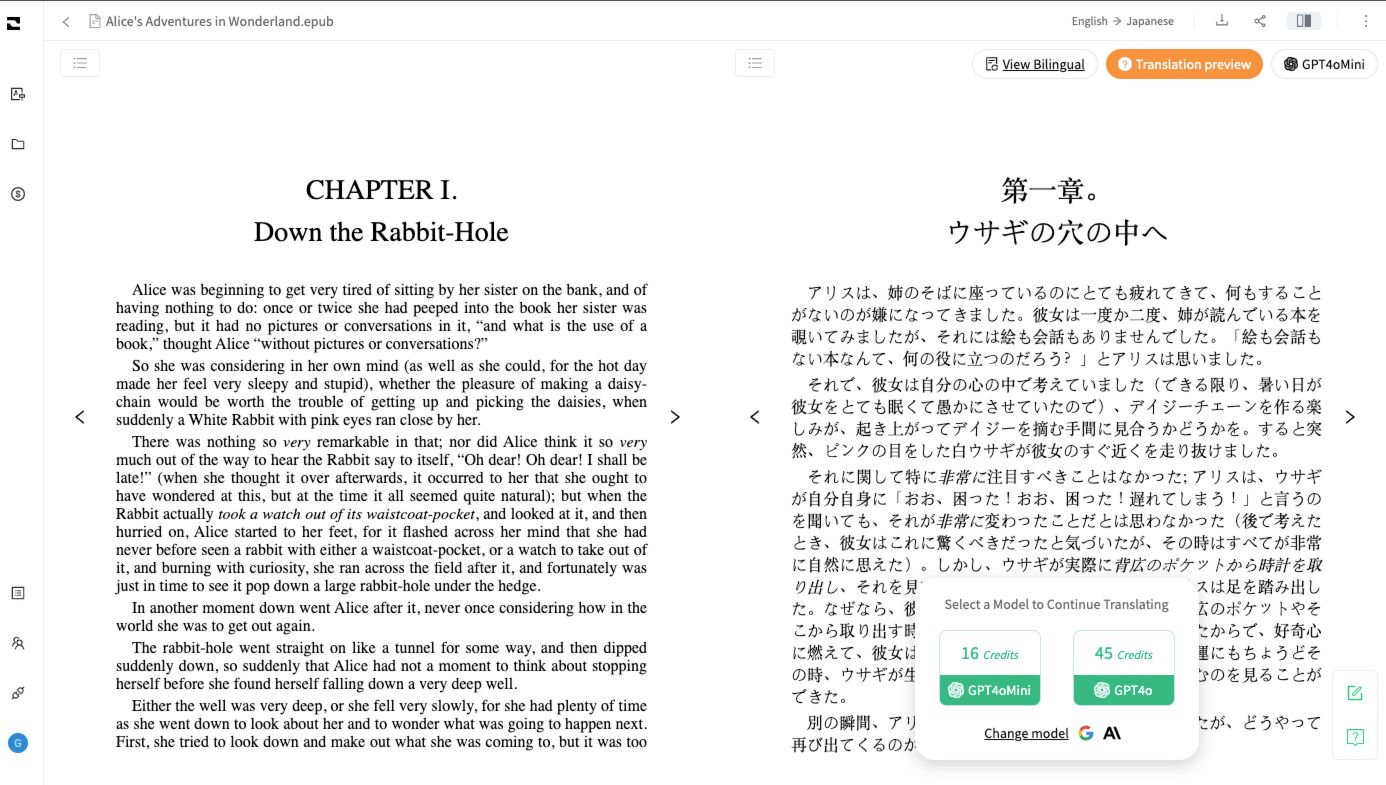
If you're still undecided, why not take a look at our Demo page and see it in action for yourself?Here you’ll find a variety of translation samples in different formats and powered by multiple AI models, letting you see the results firsthand and truly enjoy a “try before you buy,” risk-free experience.
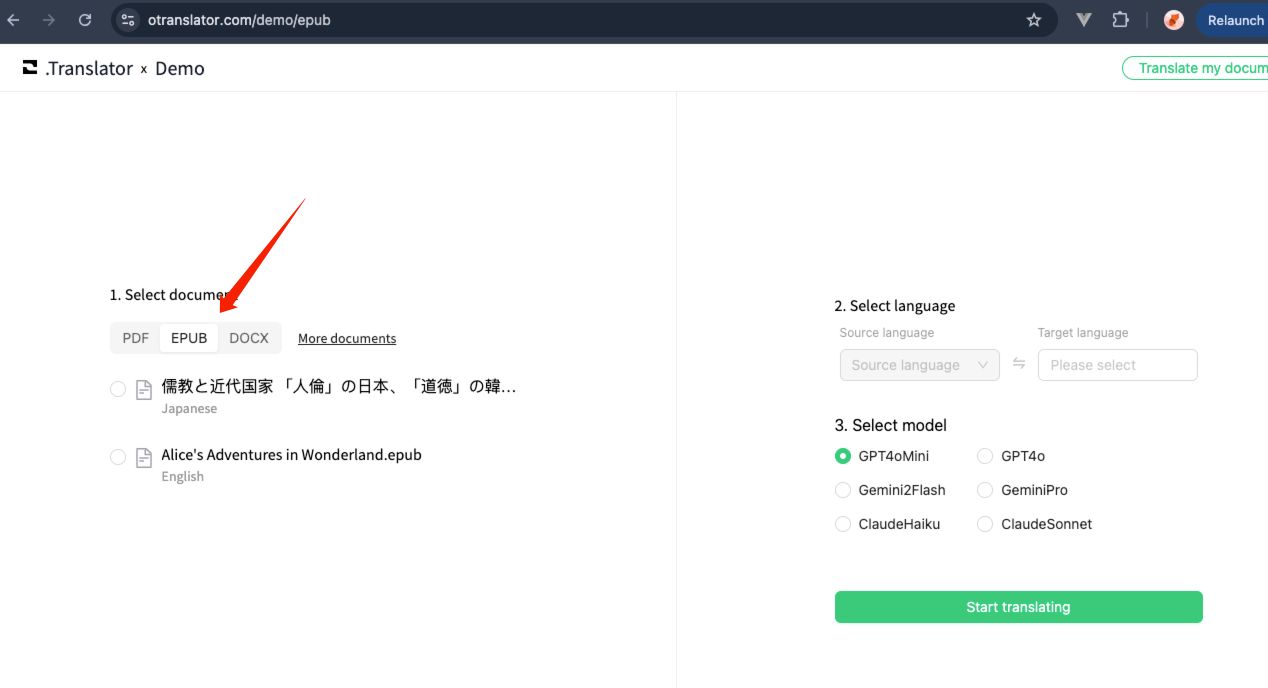
AI technology is breaking down the barriers between knowledge and language like never before. It’s time to say goodbye to those dreadful machine translations. Let O.Translator open the door to a new era of seamless, worldwide reading for you!


